Granite countertops are a popular choice for many homeowners due to their durability, beauty, and ability to enhance the aesthetic appeal of any kitchen or bathroom. However, maintaining granite countertops requires specific care to keep them looking their best and to ensure they last for many years. One of the most important aspects of granite countertop maintenance is sealing. Granite is a porous material, and without proper sealing, it can absorb liquids and become stained. A high-quality sealer creates a protective barrier, preventing liquids from penetrating the surface. It’s recommended to reseal granite countertops every one to two years, depending on the level of use and the type of sealer used.
Cleaning granite countertops is another crucial maintenance task. It’s important to use a pH-neutral cleaner that is specifically designed for natural stone. Harsh chemicals, acidic cleaners, and abrasive scrubbing pads can damage the sealant and scratch the surface. Instead, a mixture of warm water and a few drops of mild dish soap can effectively clean granite countertops. Wipe the surface with a soft cloth or sponge, and then dry it with a clean, dry cloth to prevent water spots and streaks.
Spills should be cleaned up immediately to prevent staining. Substances like red wine, coffee, oil, and acidic foods such as citrus fruits and tomatoes can leave lasting stains if not addressed promptly. Blot the spill with a soft cloth rather than wiping it, as wiping can spread the spill further. After blotting, clean the area with a mild dish soap and water solution, and then dry it thoroughly.
Using cutting boards, trivets, and coasters can help protect granite countertops from scratches, heat damage, and stains. Although granite is very hard and resistant to scratches, using a cutting board can prevent dulling of knives and potential surface damage. Hot pots and pans should never be placed directly on granite countertops, as this can cause thermal shock and lead to cracking. Trivets or heat pads should always be used under hot cookware.

Granite countertops should be polished regularly to maintain their shine and luster. Polishing also helps to reinforce the sealant, providing an additional layer of protection against stains and scratches. There are many commercial granite polishes available, but it’s essential to choose one that is designed specifically for natural stone. Polishing should be done every few months or as needed, depending on the level of use and wear.
Inspecting granite countertops regularly for signs of damage or wear is crucial for long-term maintenance. Look for any cracks, chips, or areas where the sealant may be wearing thin. Addressing these issues promptly can prevent more extensive damage and costly repairs. Small chips and cracks can often be repaired with a granite repair kit, but more significant damage may require professional assistance.
One common mistake in maintaining granite countertops is using the wrong cleaning products. Avoid using vinegar, ammonia, bleach, or any acidic or alkaline cleaners, as these can damage the sealant and the granite itself. Stick to pH-neutral cleaners that are safe for natural stone to ensure the longevity of the countertop.
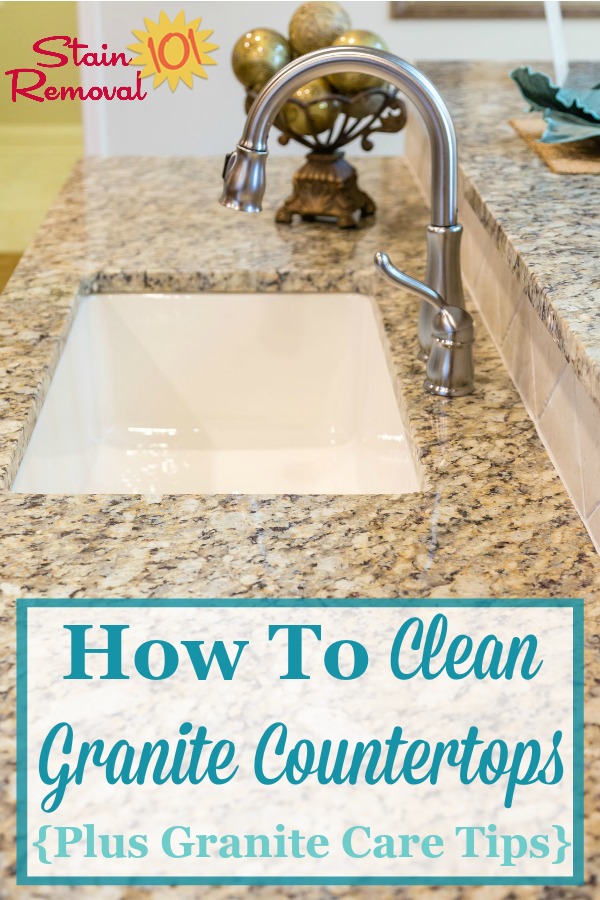
Regularly dusting granite countertops can help maintain their appearance. Dust can accumulate and create a dull look over time. Use a soft cloth or a microfiber cloth to dust the surface regularly. This simple task can keep the countertops looking clean and bright without the need for frequent deep cleaning.
For deeper cleaning, a granite-specific cleaner can be used occasionally to remove any buildup that regular cleaning might miss. These cleaners are formulated to be safe for natural stone and can help to remove tougher stains and buildup without damaging the sealant or the granite.
In addition to regular cleaning and sealing, it’s important to avoid placing heavy objects on granite countertops. While granite is strong and durable, placing excessively heavy items on the edges or overhangs can cause cracks or damage. Ensure that heavy items are placed on the supported areas of the countertop to prevent any structural issues.
Granite countertops should also be protected from sharp impacts. Dropping heavy or sharp objects on the surface can cause chips or cracks. Being mindful of this and handling kitchenware carefully can help maintain the integrity of the countertop.
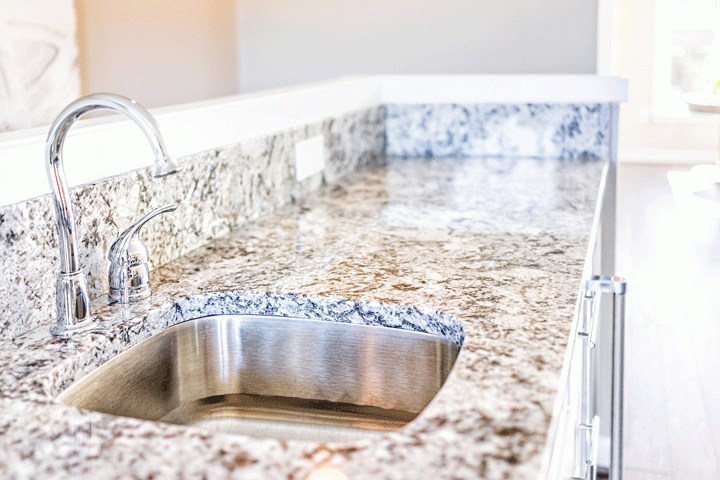
When dealing with stains that don’t come off with regular cleaning, a poultice can be used. A poultice is a paste made from baking soda and water or a commercial stain remover. Apply the poultice to the stained area, cover it with plastic wrap, and let it sit for 24-48 hours. The poultice will draw out the stain from the granite. After removing the poultice, clean the area with a pH-neutral cleaner and reseal if necessary.
Understanding the specific type of granite you have can also influence your maintenance routine. Different types of granite can have varying levels of porosity and susceptibility to stains. Knowing your granite type can help you tailor your maintenance practices to better protect your countertops.
Educating all household members on proper care and maintenance practices for granite countertops is essential. Everyone should be aware of the importance of using cutting boards, cleaning up spills immediately, and using appropriate cleaning products. Consistent care by everyone in the household will ensure the longevity and beauty of the granite countertops.
Finally, investing in professional maintenance services occasionally can be beneficial. Professionals can provide deep cleaning, resealing, and polishing services that can extend the life of the granite countertops. They can also inspect for any potential issues that might not be visible to the untrained eye, ensuring that any problems are addressed before they become significant.
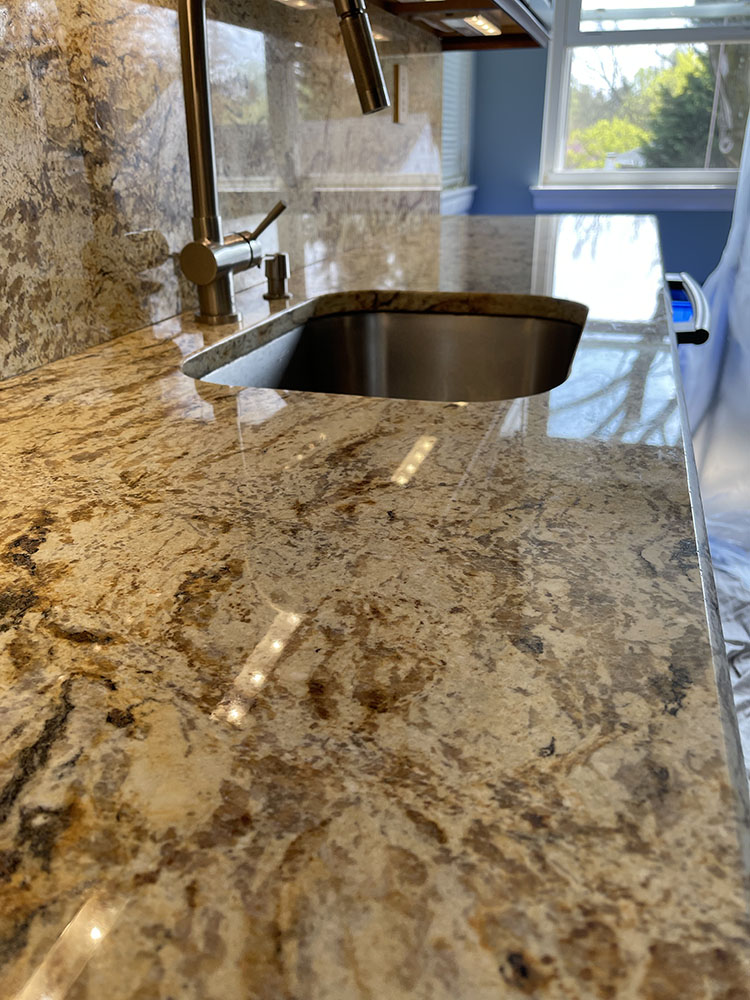
Common Mistakes to Avoid
When maintaining granite countertops, there are several common mistakes to avoid to ensure their longevity and appearance. One of the most frequent errors is using harsh or acidic cleaning products. Cleaners containing vinegar, ammonia, or bleach can strip the sealant and damage the granite, leading to dullness and increased susceptibility to stains. Always use pH-neutral cleaners specifically designed for natural stone.
Another common mistake is neglecting to reseal the countertops regularly. Granite’s porous nature means it can absorb liquids and become stained if not properly sealed. Failing to reseal the countertops every one to two years can result in permanent staining and reduced durability. Regular resealing is crucial to maintaining the protective barrier against moisture and stains.
Using the countertop as a cutting board is another error that can lead to scratches and dulling of knives. While granite is scratch-resistant, it is not scratch-proof. Using a cutting board not only protects the countertop but also maintains the sharpness of your knives. Similarly, placing hot pots and pans directly on the granite can cause thermal shock and potential cracks. Always use trivets or heat pads to protect the surface from heat damage.
Ignoring spills and not cleaning them up immediately can lead to stains that are difficult to remove. Substances like wine, coffee, oil, and acidic foods can penetrate the granite if left unattended. Promptly blotting spills and cleaning the area with a mild soap and water solution can prevent stains from setting in.
Lastly, placing heavy objects on unsupported areas or edges of the granite countertop can cause cracks or damage. Granite is strong but not impervious to pressure. Ensure heavy items are placed on supported sections of the countertop to avoid structural issues. Regularly inspecting for signs of wear or damage and addressing them promptly can also help maintain the integrity of the countertops.

How often should I reseal my granite countertops?
Resealing granite countertops is typically recommended every one to two years, depending on the level of use and the type of sealer used. Regularly check the countertops for signs of water absorption or dullness, which can indicate that resealing is necessary. Keeping the countertops properly sealed helps protect against moisture and stains, maintaining their beauty and durability.
What cleaners are safe to use on granite countertops?
It is essential to use pH-neutral cleaners specifically designed for natural stone. Avoid harsh chemicals, bleach, vinegar, and abrasive scrubbers, as these can damage the sealant and the granite itself. A simple solution of warm water and mild dish soap can effectively clean granite countertops. Always use a soft cloth or sponge and dry the surface thoroughly after cleaning to prevent water spots.
How do I remove stains from granite countertops?
For tough stains, a poultice made from baking soda and water or a commercial granite stain remover can be effective. Apply the poultice to the stained area, cover it with plastic wrap, and let it sit for 24-48 hours. The poultice will draw out the stain from the granite. After removing the poultice, clean the area with a pH-neutral cleaner and reseal if necessary to restore the protective barrier.
Can I use my granite countertop as a cutting board?
It is not advisable to use granite countertops as a cutting board. While granite is scratch-resistant, it is not scratch-proof. Using a cutting board protects the granite from potential scratches and maintains the sharpness of your knives. Cutting directly on the granite can also wear down the sealant over time, making the surface more susceptible to damage.
Why is it important to avoid placing hot items directly on granite countertops?
Placing hot pots and pans directly on granite countertops can cause thermal shock, which may lead to cracks or damage. Granite can handle high temperatures, but sudden changes in temperature can be harmful. Always use trivets or heat pads to protect the granite from heat damage and to maintain the integrity and appearance of the countertops.
How to Clean Granite Countertops
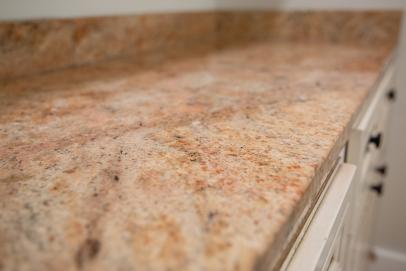
Granite Countertops Maintenance + Care

Granite Countertop Maintenance: How To Keep Your Granite Sparkling
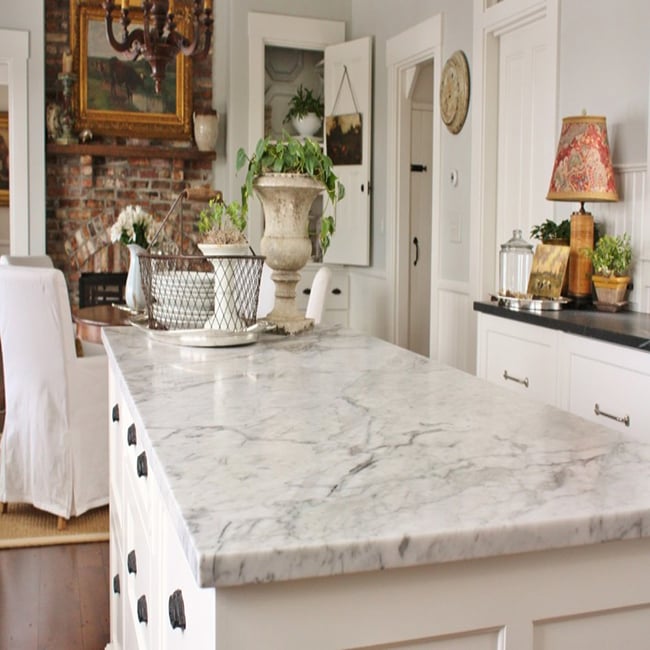
Granite countertop maintenance tips and tricks – Ideas by Mr Right

Care & Maintenance Tips For Natural Stone Countertops Classic Rock

Related articles: